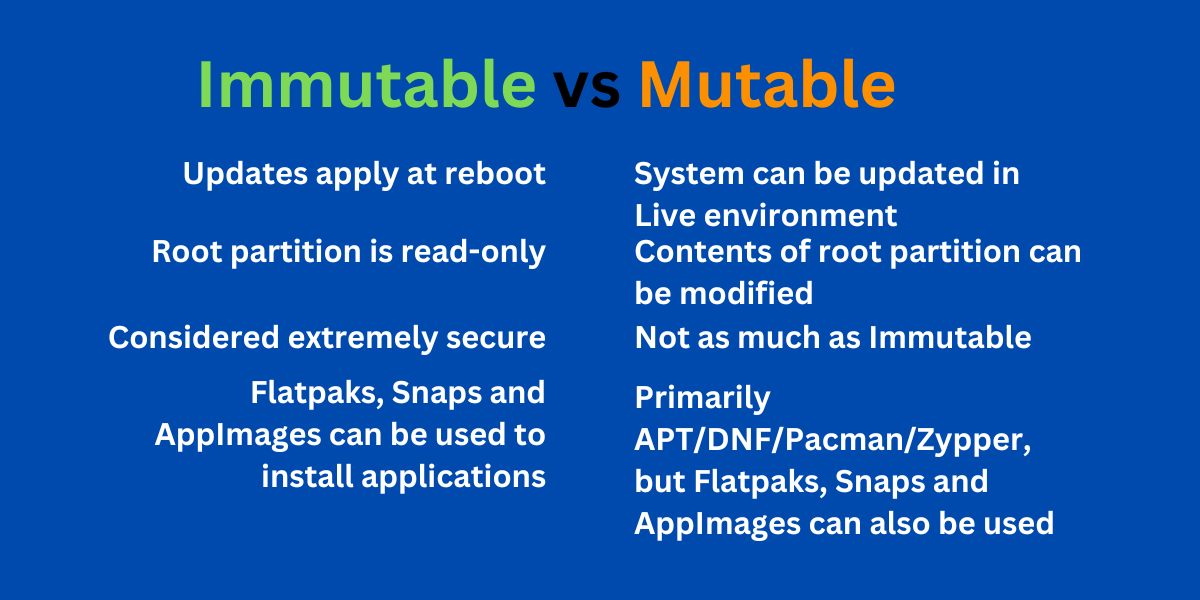Since the idea is that the "root partition" is immutable, serious question:
How do you fix a hardware config issue or a distro packaging / provision issue in an immutable distro?
Several times in my Linux history I've found that, for example, I need to remove package-provided files from the ALSA files in /usr/share/alsa in order for the setup to work with my particular chipset (which has a hardware bug). Other times, I've found that even if I set up a custom .XCompose file in my $HOME, some applications insist on reading the Compose files in /usr/share/X11/locale instead, which means I need to be able to edit or remove those files. In order to add custom themes, I need to be able to add them to /usr/share/{icons,themes}, since replicating those themes for each $HOME in the system is a notorious waste of space and not all applications seem to respect /usr/local/share. Etc.
Unless I'm mistaken on how immutable systems work, I'm not sure immutable systems are really useful to someone who actually wants to or needs to power user Linux, or customize past the "branding locking" that environments like Gnome have been aiming for for like a decade.
